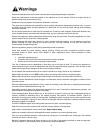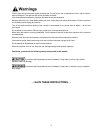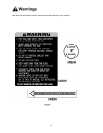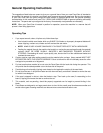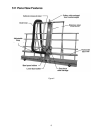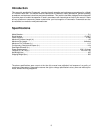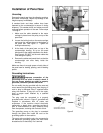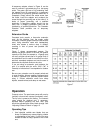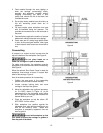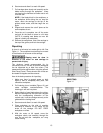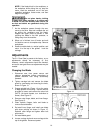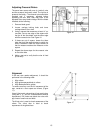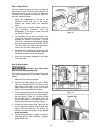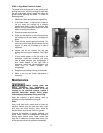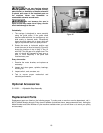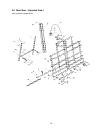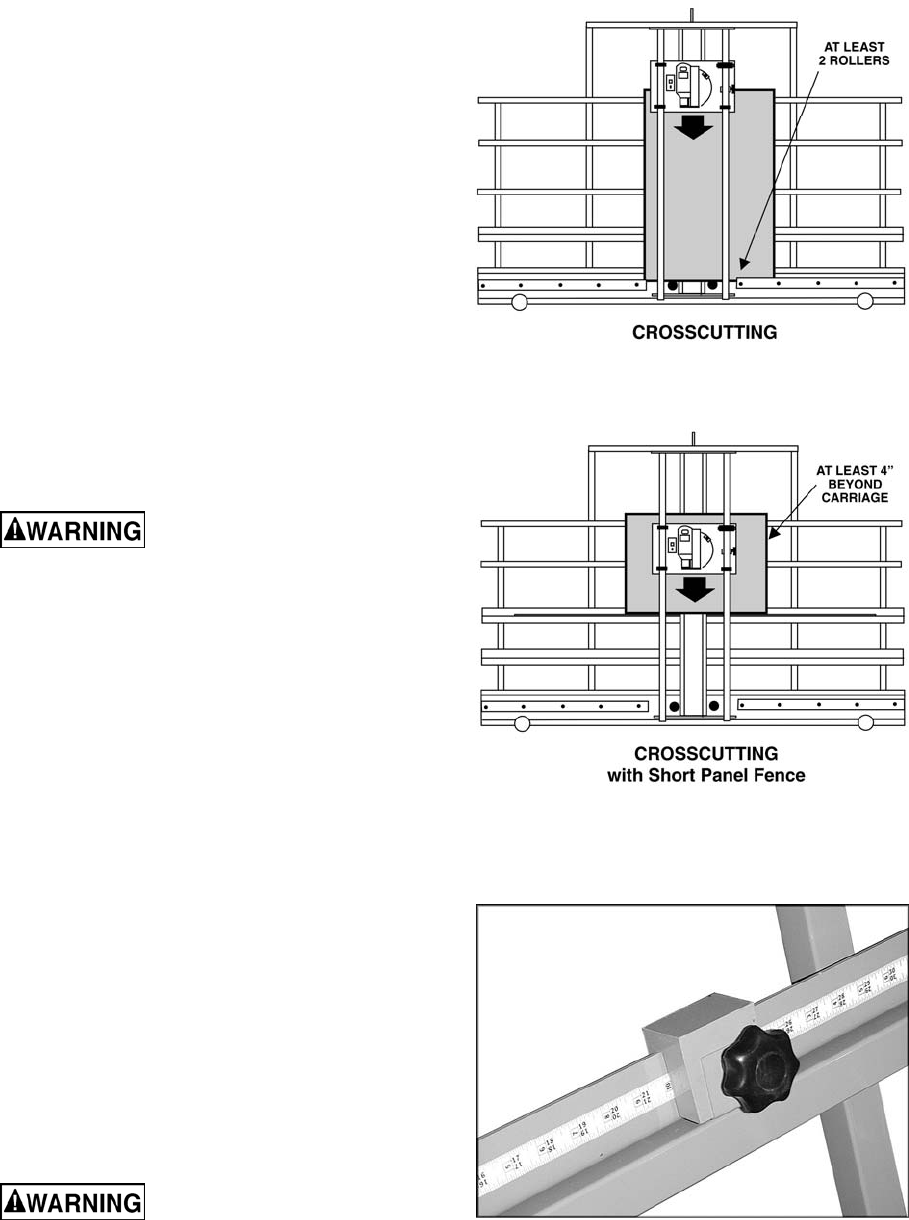
12
2. Feed material through the saw (ripping) or
lower the carriage (crosscutting) slowly,
smoothly and whenever possible without
stopping. Overfeeding can result in poor
quality cuts, shorten the life of the blade, and
overload the motor.
3. Do not drop heavy material onto the rollers, as
this will eventually pound them out of
alignment.
4. For best results, place workpiece onto saw
with its backside facing the operator. This
provides the smoothest cut on the face side of
the panel.
5. Feed workpiece against the rotation of the saw
blade when making horizontal cuts (ripping).
6. Panel saws are for cutting large panels down
to size. As the panel gets smaller, other types
of tools become safer and more convenient to
use.
Crosscutting
A crosscut is a vertical cut that is made from the
top to the bottom of the workpiece. See Figure 8.
Do not place hands on or
under the carriage or in path of saw blade.
For safety and accuracy, the workpiece must be
supported on at least two rollers while crosscutting.
See Figure 8.
When the optional Short Panel Fence is used, the
workpiece must extend at least 4" beyond both
sides of the carriage, Figure 9.
Here is the basic procedure for crosscutting:
1. Position the saw motor in the crosscutting
position with the blade oriented vertically.
2. Loosen carriage locking knob and move
carriage to the top of the guides.
3. Move the adjustable stop (optional accessory
no. 511-ASA), shown in Figure 10, to the
measurement on the horizontal scale (either
left or right side of carriage) that matches the
desired width of your cut.
4. Place the workpiece on top the rollers. DO
NOT DROP it on the rollers.
5. Slide workpiece into position against the
adjustable stop, while double checking the cut
size via the crosscut rulers. Make sure
workpiece is adequately supported. Use one
hand to guide it.
Do not hold workpiece so that
your hand is behind the carriage or guides or
near the path of the blade.
Figure 8
Figure 9
Figure 10



